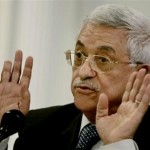NEW Latest Iran Video: University Protests (27 October)NEW Iran: More on Kian Tajbakhsh and Tehran’s “Velvet Revolution”Latest Iran Video/Translation: Karroubi on Events in the Iran Media FairIran’s Political Confusion: Khamenei, Ahmadinejad, and the Nuclear AgreementLatest from Iran (26 October): After the FairReceive our latest updates by email or RSS SUBSCRIBE TO OUR FEED
Buy Us A Cup of Coffee? Help Enduring America Expand Its Coverage and Analysis
2015 GMT: 13 Aban Does Not Exist. Homy Lafayette
offers more detail on the Government's order to state media to "refrain from disseminating any news, photo, or topic which can lead to tension in the society or breach public order" during the demonstrations on 13 Aban (4 November).
The article includes an English translation of the document, issued by Deputy Culture and Islamic Guidance Minister Alireza Malekian.
1810 GMT: Iran's Nuclear Manoeuvre. If
this story from Press TV is accurate, then Tehran is haggling over the details of third-party enrichment, rather than walking away from the deal.
The article re-quotes the source who spoke to Al Alam TV (see 1015 GMT), "Iran will announce its response to the proposal put forward by [International Atomic Energy Agency] Director-General [Mohamed] ElBaradei on Friday, October 30." The official added that Iran did not want to send 80 percent of its uranium stock in a single shipment to Russia, as set out in the deal from the Vienna talks: "Iran as a uranium buyer knows best how much uranium, enriched to a level of 19.75 percent, it needs [for its medical research reactor]; based on this argument, it will raise certain issues with this proposal."
In other words, Tehran will insist on a lower amount of uranium --- currently, the deal is for 1.2 million out of 1.5 million tonnes --- being sent to Russia in the first shipment. More would be delivered for enrichment as the medical reactor required new supplies.
The report is seconded by the head of Parliament's Foreign Policy and National Security Commission, Alaeddin Boroujerdi, "Iran can send the scheduled amount in separate shipments so that its fuel supply [provided by foreigners] is guaranteed....Iran can send only a part of its stockpile … and then as it receives its 20 percent enriched fuel it will send the next portion."
A word of caution on this interpretation: Boroujerdi is close to President Ahmadinejad and is putting the pro-deal view. It is unclear whether the dissenting voices such as Ali Larijani (and possibly, behind Larijani, the Supreme Leader) have come around to this position.
1750 GMT: Back from a teaching break to find that
Rooz Online, following up a story prominent on the Internet this morning, has published details of
an alleged Government order to censor and possibly shut out any news of mass demonstrations on 13 Aban (4 November).
1230 GMT: As reports continue to come in, with claims of 1500 students protesting at Azad University in Tehran, we've
posted the first video footage.
1020 GMT: Reports that
students gathered to demonstrate at Tehran University but are being forced to move by security forces.
1015 GMT:
Reuters is reporting, from Iran's Al-Alam television, that Iran will accept the uranium enrichment agreement but will demand changes. The source is an "unnamed official" who indicates Iran's reply will be made within 48 hours.
0810 GMT: Detentions, Concerns, and Hunger Strikes. Human Rights Activists in Iran has posted
a summary of latest developments regarding post-election detainees. Included is the information that journalist Henganeh Shahidi and student Payman Aref have started hunger strikes.
0800 GMT: Myth, Imprisonment, and "Velvet Revolution".
We've just posted more on the jailed Iranian-American scholar Kian Tajbakhsh and the regime's accusations and tactics with the claim of foreign-directed regime change in
0715 GMT: A reader has pointed us to
a report posted by CNN on a prison riot in Karaj, west of Tehran, on Sunday. Interestingly, the story comes from the National Council of Resistance in Iran, the opposition movement headed by Maryam Rajavi and linked to Mujahedin-e-Khalq.
0635 GMT: Meanwhile CNN International (broadcast, not website) is focusing on a peripheral story. Pakistan detained and
has now released 11 Iranians who crossed the border yesterday. The original line was that the detainees were Revolutionary Guard members, possibly pursuing or looking for leads on those linked to last week's bombings. Pakistan, probably after discreet talks with Tehran, is now calling the wanderers "security guards"; Press TV portrays them as "border police" pursuing smugglers.
0630 GMT: Now
The Washington Post has picked up on the effect of the internal debate on the enrichment agreement (and vice-versa) with
an overview by Thomas Erdbrink, "Iran officials appear split on nuclear plan".
0600 GMT: One of the standing rules for analysis, when students and I consider US foreign policy, is that what happens overseas cannot be separated from what happens at home.
So it is proving --- and may prove in a significant way in the next 72 hours --- in Iran.
Tensions over the decision on the uranium enrichment deal are now beyond simmering and openly bubbling. Even this weekend, all the signals from the Iranian Government were that it would work out any issues and sign the proposal, with a significant portion of Iran's uranium stock going to Russia for enrichment, by Wednesday or Thursday. Now, all bets are off.
Readers took
yesterday's analysis of the possible conflict between the Supreme Leader and President Ahmadinejad to a new level with their comments, but this morning I still find myself with questions rather than answers. The straightforward explanation would be that the Supreme Leader, working through the statements of Parliamentary leaders like Ali Larijani and Mohammad Reza Bahonar, is now blocking agreement. But, if so, why did he apparently endorse "engagement" to the point where the deal was almost struck? What could be the calculation in approaching the International Atomic Energy Agency, and thus Washington, in the summer and now walking out on the deal at the 11th hour?
Other theories from our readers include an Iranian "good cop, bad cop" act which would allow Ahmadinejad to portray himself as the guy who wanted to work with Obama but had to give way to Ayatollah Khamenei and the Iranians walking out of the arrangement because their ploy --- getting uranium for the medical reactor enriched for free while retaining enough of their stock to pursue other programmes --- hasn't yielded enough of a result.
Fortunately for my confusion, if not the general situation, there should be some clarification by Friday. Iran can't spin out the post-Vienna deliberations beyond the weekend, given that the US has already let last Friday's deadline slide in expectation of a Tehran decision within a few days. So it's accept, reject, or try to bring the "5+1" powers back to the table for talks.
And that declaration from Iran will in turn give the US Government, as well as the European powers, Russia, and China, a somewhat paradoxical choice. If Tehran does not sign the enrichment agreement, does the Obama Administration continue engagement, possibly strengthening the Iranian President against his own Supreme Leader? Or does it walk away (or is forced away by Congressional and public hostility to any more talks), now watching an internal Iranian situation in which Washington is no more than a bystander?
 Tuesday, October 27, 2009 at 23:59
Tuesday, October 27, 2009 at 23:59  Azad University,
Azad University,  Iran,
Iran,  Iran Elections 2009 in
Iran Elections 2009 in  Middle East & Iran
Middle East & Iran  Azad University,
Azad University,  Iran,
Iran,  Iran Elections 2009 in
Iran Elections 2009 in  Middle East & Iran
Middle East & Iran 
 2015 GMT: 13 Aban Does Not Exist. Homy Lafayette
2015 GMT: 13 Aban Does Not Exist. Homy Lafayette  Despite (or possibly because of) the muted public response by the US Government to the 15-year sentence handed down to Iranian-American academic Kian Tajbakhsh, the campaign for his release has picked up steam in the last week. On Sunday we featured an article by Karim Sadjadpour, and fellow scholar Haleh Esfandiari, who was detained for months with Tajbakhsh in 2007,
Despite (or possibly because of) the muted public response by the US Government to the 15-year sentence handed down to Iranian-American academic Kian Tajbakhsh, the campaign for his release has picked up steam in the last week. On Sunday we featured an article by Karim Sadjadpour, and fellow scholar Haleh Esfandiari, who was detained for months with Tajbakhsh in 2007,  This week the meeting of foreign ministers of Mediterranean Union countries
This week the meeting of foreign ministers of Mediterranean Union countries  Mahmoud Abbas, the leader of the Palestinian Authority, is using every means available to press Washington on the Israel-Palestine issue. It emerged yesterday that last week
Mahmoud Abbas, the leader of the Palestinian Authority, is using every means available to press Washington on the Israel-Palestine issue. It emerged yesterday that last week 